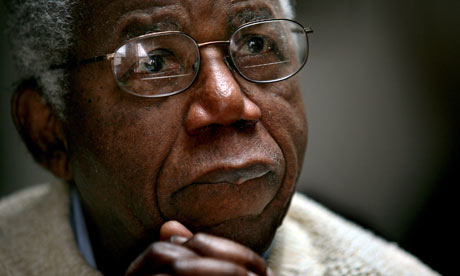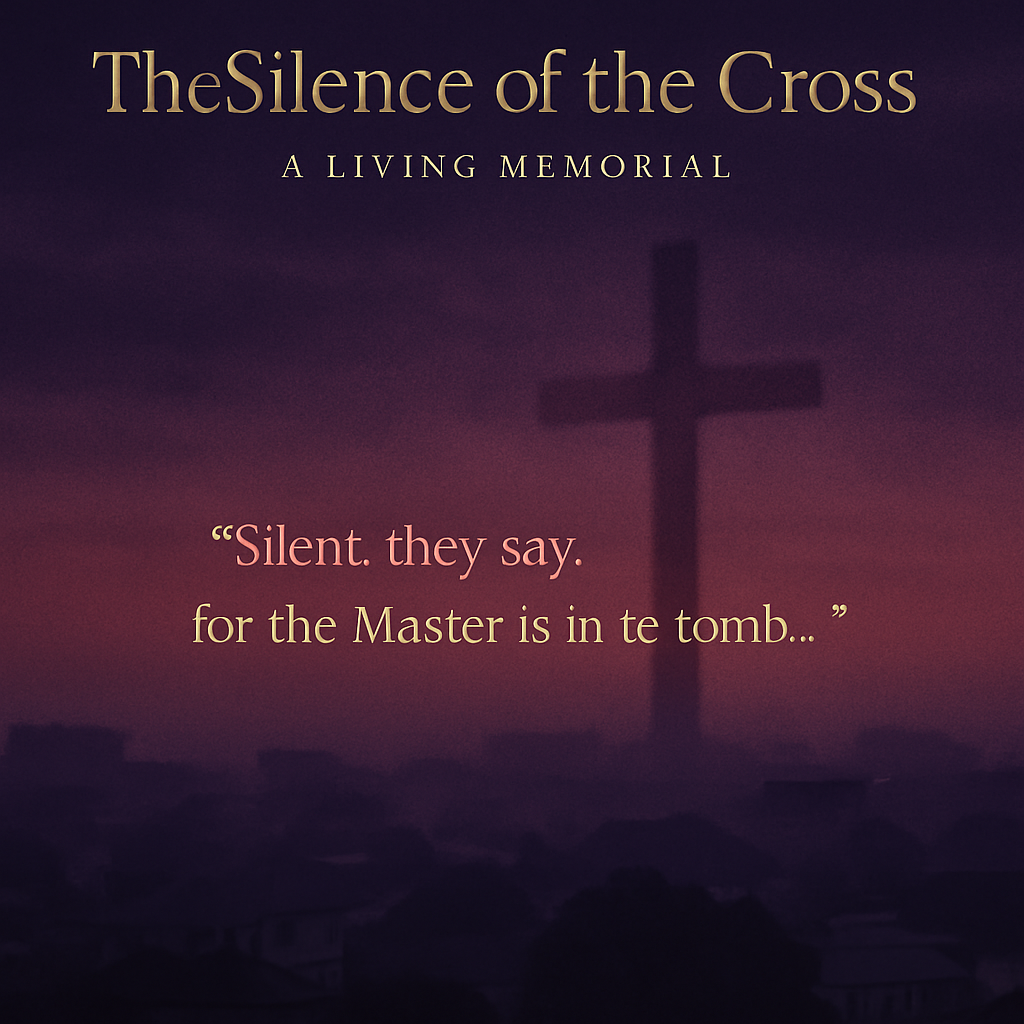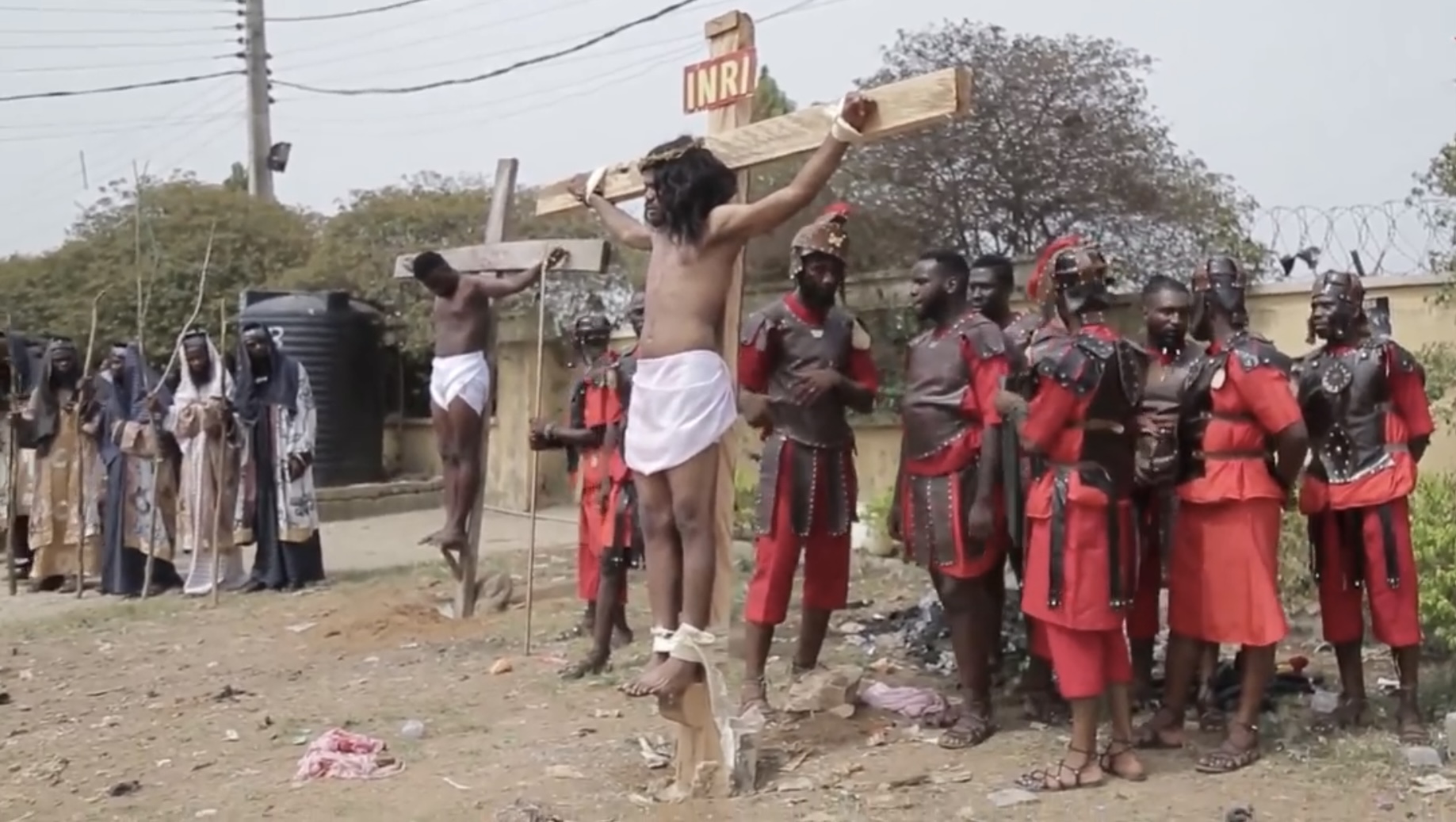There are many who have been making comments and criticism of the recent book of Chinua Achebe, There Was A Country: A Personal History of Biafra, but have not yet seeing the back cover of the so called Book. Sure, I do not intend to prevent people from sharing “their view” on a book they have not yet seen, but I am just thinking they should adopt the wise adage: “If you do not what to say, you then keep quite“.
However, not everyone will have the opportunity of laying hand on such a
work, but many could also have the opportunity of not only listening to
those who read the book, but to those who read and compared the work
with their own personal experience of the Nigerian-Biafran war.
However, not everyone will have the opportunity of laying hand on such a
work, but many could also have the opportunity of not only listening to
those who read the book, but to those who read and compared the work
with their own personal experience of the Nigerian-Biafran war.
This
work, undoubtedly is one of the greatest, most debated and contested
write-up in the annals of Nigerian literary world. Here is a résumé done
by a Nigerian whose childhood was shaped by the life after Biafran
fall. It is a summary worth reading, at least for all those who have
been longing to have a taste of such a golden piece. Enjoy the résumé!
Nigeria is haunted by Biafran war by Ike Anya
Chinua Achebe’s new memoir suggests that his country is still suffering from a refusal to face up to its insalubrious history
Chinua Achebe. Photograph: Craig Ruttle/APIn our house in Nsukka, the small university town in eastern Nigeria
where I grew up, my parents’ bedroom harboured a cupboard, reached only
by standing on a stepladder. In that cupboard lay a battered brown
leather satchel, filled with memorabilia from Biafra. I remember Biafran
stamps, currency notes and coins, photographs, receipts, letters and a
small green hard backed pamphlet: The Ahiara Declaration.From
time to time, under conditions of great secrecy, the satchel would be
brought down and my brothers and I would be allowed to rummage through
it as my parents told us stories of their harrowing experiences during
the war. We would look at photographs of friends and family “lost” in
the conflict, or during the massacres of Igbos that preceded it. We
would marvel at the lightness of the Biafran coins. I don’t remember my
parents explicitly saying it, but somehow it was communicated to us that
the satchel and its contents were not things to be discussed outside
the family home.In Nigeria in the 1970s when I grew up, Biafra
was only talked about in hushed tones, in an atmosphere of an unspoken
fear that talking about it could bring reprisals.A few weeks ago,
I was lucky enough to be invited to an early rough-cut screening of the
film version of Chimamanda Adichie’s book, Half of a Yellow Sun. At the
end, in the darkened room in Soho, as I joined others to congratulate
the director Biyi Bandele, I found myself hugging him instead and felt
to my embarrassment, tears running down my cheeks. As I apologised,
avoiding the bemused stares from some of the staff at the venue, I
explained to Biyi that I had felt such a powerful reaction because the
story he was telling was the story of my family – of my parents and
grandparents.That evening, as on the phone I described my
feelings watching Biafran refugees fleeing the university town of Nsukka
to my mother, who had herself fled the town with my father and elder
brother in 1967, she said “I am glad that our story is going to be told,
that the world will remember”.
Chinua Achebe‘s
new book There Was A Country: A Personal History of Biafra emerges into
this landscape of memory and remembrance, 42 years after the war ended.
In the book Achebe, a few weeks before his 82nd birthday, finally sets
out to tell the story of his Biafra. The format he adopts is novel –
involving a rambling mix of anecdotes, summarized histories, analysis,
reportage, declamation and haunting poetry. In some ways, reading the
book feels like I imagine spending an hour or two chatting with the
distinguished novelist might.He roams from the story of how
Nigeria came to be, to his schooldays and burgeoning friendships with
prominent figures like the poet Christopher Okigbo, whose presence looms
large through the book. Interspersing the historical account is the
story of his father, one of the early Igbo converts to Christianity, and
his experiences growing up with newly Christian, trailblazing parents
caught between the old traditions and cosmology of the Igbo people and
the new Christianity. The personal glimpses into his early life are
hugely enjoyable and indeed tantalizing – often outlined so succinctly,
that he leaves the reader greedy for more detail.Approaching the
events leading up to the war – the descent of the first
post-independence Nigerian government into an abyss of corruption and
misrule; the role that the colonial government played in setting the
stage for this descent and the first military coup in 1966 – he acquires
a less personal and more straightforward recounting tone. This
continues until the latter part of the book, when he begins to describe
the counter-coup of July 1966, the massacres of Igbos that followed the
coup, the failed attempts at negotiating peace and the subsequent
declaration of independence and the harrowing consequences that
followed.Achebe, as is his right, does not pull any punches,
although he does make some concessions to alternative points of view,
especially in relation to the legacy of colonialism and the moral
imperative on writers to produce committed literature. He is less
conciliatory on the question of whether the actions of the Federal
Government of Nigeria during the war constituted war crimes and,
possibly, genocide. He is scrupulous in naming the officers and
individuals responsible, and where possible provides their viewpoints
based on news and other reports.He also highlights the role
played by Western countries and the international community. And he
challenges the popular perception that General Gowon’s “No Victor, No
Vanquished” policy at the end of the war in 1970 led to the successful
re-integration of the Igbos into Nigeria, highlighting the egregious
government policy which wiped out the savings of every Biafran who had
operated their bank accounts during the war with an “ex- gratia” payment
of just 20 pounds. He is also laser sharp in his conviction that part
of Nigeria’s problem stems from its anti-meritocratic suppression of the
Igbo people, and the refusal of the country to face up to insalubrious
aspects of its history, issues that he argues continue to haunt it.Of
particular interest are the snippets that emerge of life in Biafra –
the intense emotional connection of a people united by the fear and
anger at the massacres, the ingenuity of the engineers who fond ways to
refine petrol or build bombs and the efforts of artists and
intellectuals to contribute to building a new nation. He also describes
his own forays to foreign capitals to seek their support for the Biafran
dream and the eventual withering and death of that dream. Sprinkled
through the book are excerpts from a series of interviews commissioned
by the Achebe Foundation with many of the key players in Nigeria’s
history. These, when eventually published, should provide a rich
resource and other perspectives on the events that the author describes.The
final section of the book picks up on Nigeria’s journey since the end
of the war, dipping into the failures of governance and the
consequences, raising several questions that need to be addressed for
the future.The book could benefit from a closer proof-reading and
fact-checking process by an informed editor. Irritating errors crop up
like “maul over” for “mull over” “deferral” for “federal”, “Iwe Ihorin”
for “Iwe Irohin” and St Elizabeth’s Hospital for Queen Elizabeth
Hospital, but these do not detract from Achebe’s attempt to present,
from his perspective, an account of those dark days. As he says in the
book, “My aim is not to provide all the answers but to raise questions
and perhaps to cause a few headaches”. It is clear that this is his
book, his view and his own particular nostalgic ramble. Ultimately, it
is important that he has shared it, warts, unevenness and all. In doing
so, Achebe has helped bring the contents of my parents’ brown satchel
back into the open.Ike Anya is a Nigerian public health
doctor and writer based in London. His essay People Don’t Get Depressed
in Nigeria appears in the current edition of Granta Magazine.
Source: TheGuardian
”The truth might be hard to say, painful to bear or even drastic for the truth sayer but still needed to be said”. ALISON.






